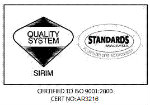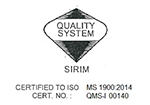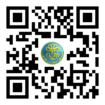Religious Preachers : Popularity Or Expertise (?)
The advancement of technology has facilitated the dissemination and acquisition of a wealth of data, including knowledge. This same technology also facilitates the free exchange of ideas, whether in the form of useful information or more subjective expressions of belief. We know that technology is merely a means of communication, so naturally there are both positive and negative aspects to it.
When it comes to mainstream media, there’s a wide variety of ways to spread the word. Religious knowledge sharing is very important and should be protected. While a credential (tauliah) may be required to give a religious lecture in a mosque (in any state), in the realm of the social media, any skill or sharing is welcome. Even if it’s a conflict when public figures are barred from teaching in particular settings, the fact that the authorities are trying to prevent the spread of false or misleading information demonstrates that they take the matter seriously. Although it’s natural to hold varying opinions, genuine references are required whenever possible when conveying information. A strong religious foundation is essential for those who wish to convey religious information. A person with a religious background in our country is one who has attended a government-approved religious institution for their religious training.
A strong spirit to deliver da’wah or any religious understanding is insufficient if you lack substantial religious knowledge. A person’s familial ties to a religious person do not give him/her the right to assert expert status in the study of religion. Getting a good religious education takes time, effort, creativity and sincerity. Arabic language proficiency is required for those with interest in religious studies. Reading the Qur’an in the correct tajwid and reciting it correctly requires knowledge of the Arabic language. Furthermore, the individual can fully engage in prayer or other rituals.
When considering an issue from a religious perspective, such as when addressing the treatment of a female patient by a male doctor, for example, shariah will consider more than just the issue of aurat or physical contact between men and women who are not mahram. This will entail several religiously significant factors, such as the patient’s life or death, the qualifications or expertise of the medical officer, ethics, the availability of medical staff of the same gender, and others. The Islamic principle of maslahah, literally meaning public interest, will be used alongside other tools and disciplines to make decisions.
An important part of transmitting religious knowledge is performing it in a righteous way. Someone of high moral character is the best kind of person, according to the Prophet. Immorality in the propagation of spiritual wisdom will do more harm to the religion than good.
Every Muslim has a responsibility to seek knowledge, and doing so brings one closer to God in Islam. Despite this, the Messenger of God, our beloved Prophet Muhammad (peace be upon him), sent an early message to people interested in religion. According to a Hadith attributed to the Prophet of God, “Whoever seeks knowledge to compete with scholars or make fun of fools and to be respected by people, God will put him in hell.”
Current technology has advanced to a very high level. Therefore, we must exercise extreme caution with regard to any information or concept that we present in any form in the digital environment. Keep in mind that the people who make up the online community come from all walks of life and work in a diverse range of fields. There is a certain area in which we excel, but it would be a mistake to overlook the fact that certain public members excel in the same area. It’s also highly likely that there are other people out there with more knowledge than we do.
In the same way, a person who claims to be religiously knowledgeable is not necessarily trustworthy. Imagine he/she imparts information without a legitimate foundation, or that shariah is a set of laws founded entirely on reason, without any adherence to any particular method or discipline. When that happens, people will start criticising him/her. Some members of the public may sense something is wrong with the dissemination of information even if they do not have a distinct religious background. Individuals with a deeper spiritual awareness will “address” the statements presented. It is a good attitude to share knowledge, even religious knowledge. Conflict may arise if one delivering it does not come from a religious background. Therefore, refraining from doing anything that can cause conflict or enmity among us is actually a good deed.




